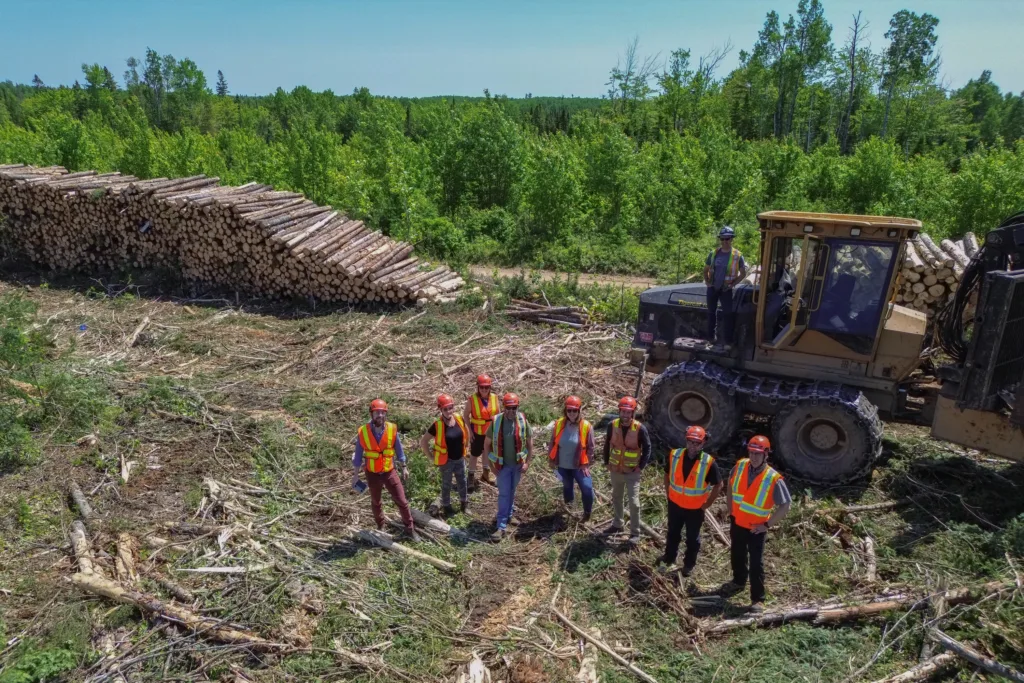Growing a future for our communities.
Explore how New Brunswick's forestry industry is leading the way for a renewable future.

THE VOICE OF NEW BRUNSWICK'S FOREST SECTOR
New Brunswick's forest sector contributes to and facilitates significant economic activity and employment opportunities in every region of the province.
Forest NB is a non-profit industry association representing New Brunswick's forest industry. Serving as a common voice in relations with government and the public, we aim to empower our members to help grow a better future for our communities. We endeavour to raise public awareness of sustainable forest management practices and provide a forum for the exchange of information, ideas, and issues facing the sector and local communities.
Learn how we are helping to grow a future of our communities.
Plan. Harvest. Regrow. Repeat.
Harvesting on Crown lands is guided by a 25-year forest management plan that considers and forecasts the abundance of environmental and societal values, natural biodiversity, and economic benefits over an 80-year period. - NB State of the Forest Report, 2023
Sustainability
New Brunswick’s public forests are a place for wild species to thrive, a place of cultural significance, a setting for people to enjoy nature, and a driver for economic growth – both now and for generations to come.
- Vision Statement - Our Forests Are For Everyone, 2023
Economics
"Forestry has been a cornerstone of the New Brunswick economy for generations, generating economic growth, recreational opportunities, and environmental sustainability among communities and families." -2022 Forest Sector Review, GNB
Workforce
Forestry in New Brunswick offers more than just jobs—it offers lifelong careers rooted in purpose, innovation, and growth.
Solutions
Forestry is a sector of solutions—constantly evolving to meet the challenges of today and tomorrow.
Growing with Forestry
Resources, videos, and more to support forestry education
Learn, grow, and teach with our forestry resources, videos, and handouts developed by the Forest NB team and collected from trusted sources across Canada.
Latest News and Opinion
For the latest news, releases, opinion, and forest sector opinion, explore our newsroom, and check out our past newsletters.
Keep up with the latest news, events, and stories that matter to New Brunswick's Forest Industry with our quarterly Newsletter
